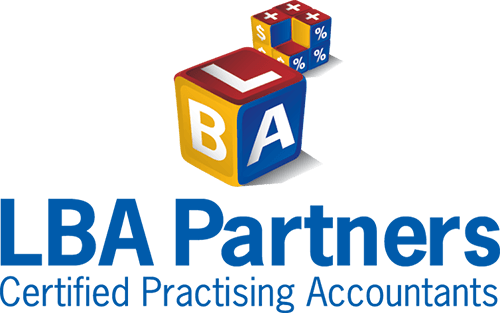P r a c t i c e U p d a t e
February 2013
New rules for trustees of SMSFs
The ATO has issued a reminder that new regulations apply to self-managed superannuation funds (SMSFs) from the 2012/13 income year.
They require trustees of SMSFs to:
• value the fund's assets at their market value for the purpose of preparing financial accounts and statements of the fund;
• consider insurance for their members as part of the fund's investment strategy; and
• review the fund's investment strategy on a regular basis.
Trustees who fail to comply with these requirements may be subject to penalties.
ATO given more powers to deal with non-compliance
Trustees have always been required to keep the money and other assets of the SMSF separate from those held by the trustee personally (or by a standard employer-sponsor or an associate of a standard employer-sponsor).
A regulation has now made this requirement an 'operating standard', which means the ATO now has the power to enforce compliance.
Contraventions may result in a fine of up to 100 penalty units.
Editor: Penalty units were recently increased from $110 to $170 per penalty unit; therefore, e.g., 100 penalty units would equal $17,000 (up from $11,000)!
New superannuation legislation
The Government has introduced further legislation to implement further 'Stronger Super' reforms.
Currently, there are no specific promoter penalties under the superannuation law in relation to illegal early release schemes.
Editor: Members of super funds are only allowed to access their super when they satisfy a 'condition of release', such as retiring or reaching age 65.
Some people, wrongly, advise members that they can get access to their superannuation earlier, which is illegal, but the promoters can get away scot-free while the member gets penalised.
Under the proposed new laws, promoters of illegal early release schemes will face civil and criminal penalties including a fine of up to $340,000 (2,000 penalty units) and/or imprisonment of up to 5 years.
Other reforms introduced include:
q taxing superannuation benefits that are accessed illegally at the rate of 45%;
q giving the ATO effective, flexible and proportionate powers to address wrongdoing and non-compliance by SMSF trustees (e.g., by issuing them with personal fines, or directing them to undertake certain actions); and
q capturing roll-overs to SMSFs as a designated service under the Anti-Money Laundering and Counter-Terrorism Financing Act 2006, to ensure superannuation benefits are not being used for illicit purposes.
ATO Data Matching Programs
The ATO has announced that it will request and collect information for the purposes of the following data matching programs.
Banking Transparency Strategy Data Matching Program
The ATO will collect the offshore account details of approximately 50,000 bank customers to identify Australian resident taxpayers with offshore bank accounts, which may evidence undeclared income and/or gains in the 2008/09 to 2010/11 financial years, from the major banks (i.e., the 'Big Four'), as well as 14 other banks, including the Bank of Queensland, Macquarie Bank, Citigroup, HSBC, Rabobank, Arab Bank Australia, Bank of China, Credit Suisse and the Union Bank of Switzerland.
Credit and Debit Card Data Matching Program
The ATO will request and collect data relating to credit and debit card sales relating to approximately 900,000 merchants for the period 1 July 2011 to 30 June 2012 from the Big Four banks, as well as St George Bank, Bendigo and Adelaide Bank, Bank of Queensland, BWA Merchant Services, American Express Australia and Diners Club Australia.
Real Property Data Matching Program
The ATO will request and collect names and addresses of approximately 10.4 million individuals and other entities transacting with real property from the various State Revenue Offices and land title registration bodies around the country, as well as other entities such as the NSW Office of Fair Trading – Rental Bond Board, Consumer Affairs Victoria – Residential Tenancies Bond Authority, and the Queensland Residential Tenancies Authority.
Termination of employment: Legal costs
Editor: The ATO has released a tax ruling which considers whether employees who are terminated, who then successfully sue their (former) employer for wrongful dismissal and receive a reimbursement for their legal costs, need to include that amount in their assessable income.
Basically, an amount received in relation to a dispute concerning termination of employment is not an 'eligible termination payment' (ETP), nor forms part of an ETP, where that amount is capable of being identified as relating specifically to the reimbursement of legal costs.
However, if the amount of a settlement or court award received is a lump sum and the component relating to legal costs has not been and cannot be determined, then the whole amount is treated as being received in consequence of termination of employment (and, therefore, an ETP).
The only other way for the legal costs to be included in assessable income is where the former employee is able to claim a deduction for the legal costs (e.g., where they are suing for lost income, rather than just for wrongful dismissal), in which case the settlement or award for legal costs will be included in their assessable income as an 'assessable recoupment' (i.e., it basically offsets the deductions they could otherwise claim).
In addition, the ruling concludes that the reimbursement of a former employee's legal costs by their former employer should not be a 'fringe benefit' and no fringe benefits tax should apply.
How to (effectively) claim input tax credits
on rental property expenses
For GST purposes, renting out a residential property is generally an 'input taxed supply', which means that landlords are generally not entitled to claim an input tax credit for the GST embedded in any rental property expenses.
However, for landlords who are also employees, there is a possible planning technique to overcome this problem.
Basically, by salary packaging certain rental property expenses, employees may effectively avoid paying the GST on those expenses.
In particular, if an employee is entitled to claim an immediate (i.e., a 100%) deduction for an expense they incurred in relation to a rental property, they should consider having their GST-registered employer reimburse the expense paid (or have the employer directly pay the expense on their behalf), and only salary package the GST-exclusive cost of the expense under a salary sacrifice arrangement.
The employer is in the same position financially, whether paying salary or an equivalent amount for the rental property expenses (provided the employer can claim an input tax credit on the expense, and a deduction for the remainder), but the employee can increase their after-tax income by only effectively paying (i.e., packaging) the GST-exclusive cost for the rental property expenses.
Please Note: Many of the comments in this publication are general in nature and anyone intending to apply the information to practical circumstances should seek professional advice to independently verify their interpretation and the information's applicability to their particular circumstances.
Management Consulting
We have the know-how and experience to offer advice that helps you run your business more effectively.
Self-Managed Superannuation Funds
At LBA Partners we provide the professional advice you need to manage your own fund and greatly simplify the process for you.



